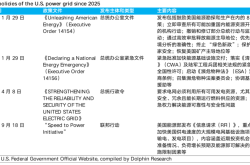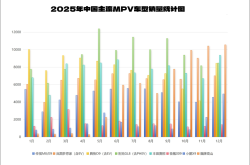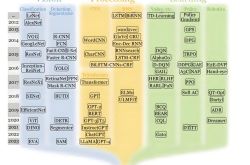Under the wave of AI and going global, Palo Alto Networks' Precision AI builds a new defense for cybersecurity
![]() 12/11 2024
12/11 2024
![]() 481
481
AI technology is spreading globally at an unprecedented rate. The rise of generative AI technologies like ChatGPT has fueled an explosive growth in native AI applications, with Deloitte predicting over 12,000 by 2030. SaaS applications are also rapidly incorporating AI elements, with the number expected to surge to 60,000 by 2030.
However, the global popularization of AI technology also brings new cybersecurity challenges, including rapidly evolving AI-driven attack tools, zero-day attacks, numerous malicious data risks associated with AI models on the market, and the security management of IoT devices, which is akin to safeguarding an ever-expanding city. These challenges continually test our defensive wisdom and capabilities.
Faced with the wave of enterprises going global and the globalization of AI, how can enterprises unleash their potential while addressing security challenges? Recently, Chen Wenjun, President of Palo Alto Networks Greater China, and Dong Chuntao, General Manager of Pre-Sales in Greater China, jointly discussed the evolution of AI technology in cybersecurity and shared a new cybersecurity strategy centered on Precision AI, providing a firm and powerful answer to this critical issue.
Precision AI: A Solution Ahead of Attacks
While AI brings benefits to enterprises, it also opens doors for attackers.
Palo Alto Networks, a global leader in cybersecurity and the first cybersecurity company with a market value exceeding $100 billion, leveraged its over ten years of AI technology accumulation and deep security data insights to recognize early on that effectively defending against AI-generated attacks and securing AI designs in the AI era requires a security solution that stays ahead of attacks.
Chen Wenjun, President of Palo Alto Networks Greater China, noted that traditional security defenses are struggling to cope with rapidly evolving cyber threats. For example, traditional cybersecurity defenses rely on signature recognition of known attack samples. However, with the development of AI technology, attackers can utilize generative AI to rapidly produce a large number of attack tools, necessitating new defense strategies to address the security challenges of the AI era.
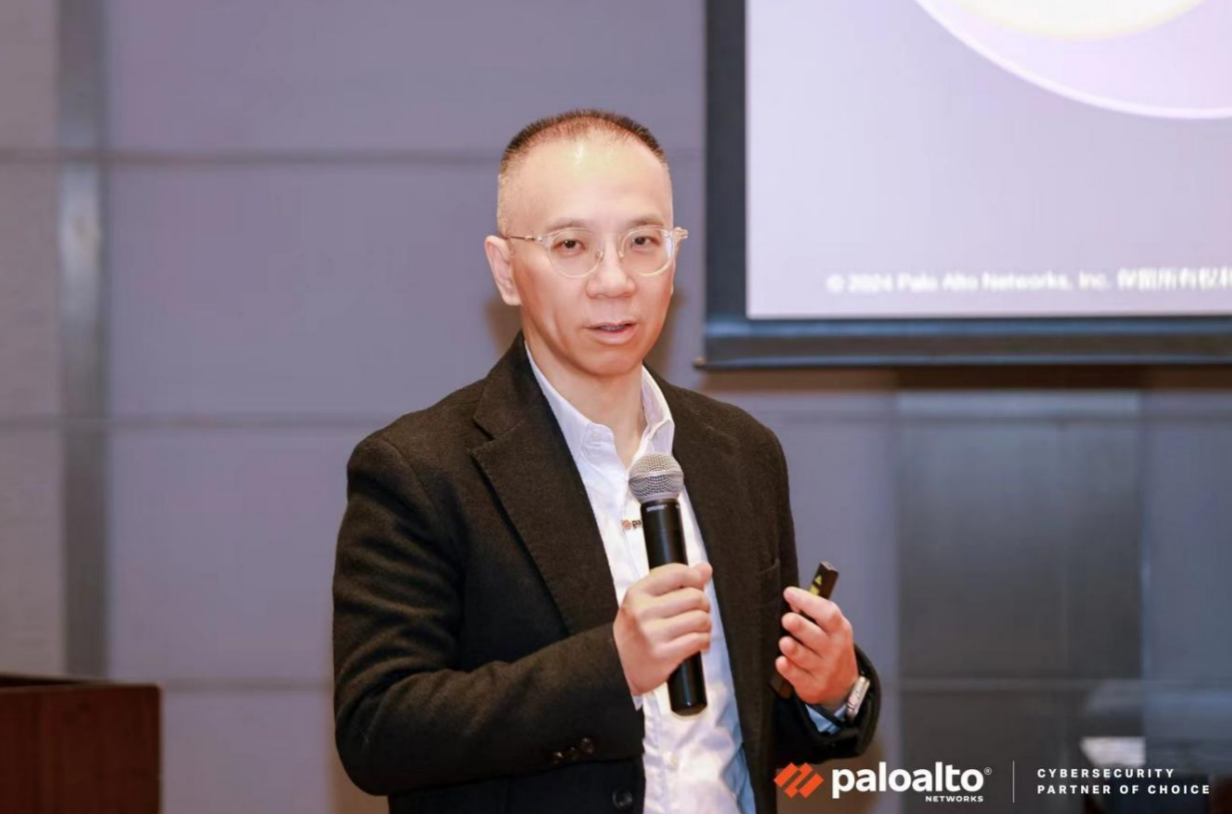
Chen Wenjun, President of Palo Alto Networks Greater China
This year, Palo Alto Networks introduced the Precision AI® security framework. Precision AI® combines the essence of machine learning (ML) and deep learning (DL) with the accessibility of real-time generative AI (GenAI), providing AI-driven security capabilities that enable early prediction and defense against potential attacks, changing the rules of the cybersecurity game and creating a new paradigm of security.
Precision AI®-driven advanced security services include advanced URL filtering, advanced threat prevention, advanced WildFire, and advanced DNS security. These services leverage online AI to prevent complex cyber threats, zero-day threats, evasive command and control attacks, and DNS hijacking attacks, protecting AI application ecosystems from runtime threats, identifying complex risks, and providing rapid remediation steps. Additionally, for security issues arising during AI design, Palo Alto Networks has created a secure AI ecosystem to minimize data breaches from the initial development stage through deployment.
According to Chen Wenjun, Palo Alto Networks has integrated Precision AI® into its Strata®, Prisma®, and Cortex® platforms, introducing new features that meet the needs of key enterprise use cases. Currently, the three major product lines of Palo Alto Networks—network security, cloud security, and security operations (endpoint security)—have achieved data integration and collaborative defense. Based on nearly 20 years of threat data and combined with AI technology, comprehensive and precise protection is achieved within the SOC, forming a robust security defense network.
With its Precision AI® security framework, Palo Alto Networks is at the forefront of industry demand changes. In October this year, Palo Alto Networks officially launched its advanced services for IoT and Operational Technology (OT) security in the Chinese market, tailoring a cybersecurity solution for Chinese enterprises that complies with China's Cybersecurity Law, Personal Information Protection Law, and Data Security Law, demonstrating its deep understanding and support for local market needs. Dong Chuntao, General Manager of Pre-Sales for Palo Alto Networks Greater China, said, "China is a key hub for advanced manufacturing. We introduced IoT/OT security services to China because we are optimistic about the vast market prospects here. Our security services have already achieved remarkable results in the early stages of introduction, and we are willing to drive the vigorous development of this market."
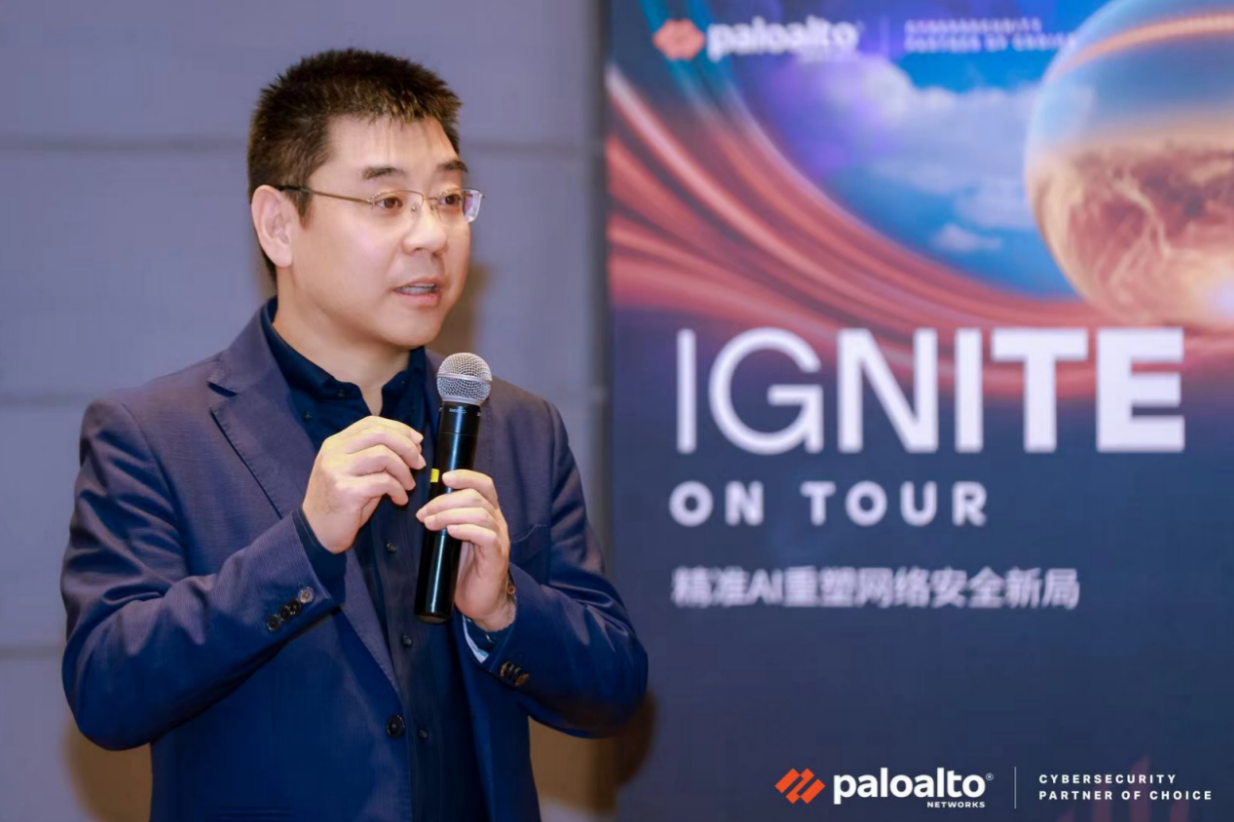
Dong Chuntao, General Manager of Pre-Sales for Palo Alto Networks Greater China
Ensuring Security to Help Enterprises Navigate the Seas Abroad
With the deepening of globalization, enterprises going global have become a new engine for growth, and many enterprises are turning their gaze to overseas markets. Since 2022, the growth rate of overseas revenue for listed companies has consistently surpassed that of domestic revenue, with overseas revenue growth approaching 14% in the first half of 2024.
As enterprises set sail to expand overseas markets, new cybersecurity challenges emerge. Once businesses expand, enterprises will face multiple challenges, including compliance requirements, regulatory requirements, data risks, and privacy protection. Therefore, cybersecurity must be an integral part of strategic planning from the outset to ensure a steady journey in globalization.
Chen Wenjun has observed a significant increase in customers concerned about cybersecurity when going global in the past one to two years, including both existing customers expanding overseas and new customers seeking cooperation due to overseas expansion needs.
Palo Alto Networks helps enterprises navigate the legal and regulatory differences across different countries and regions, particularly data protection regulations. For example, the EU's GDPR imposes severe penalties for data breaches, up to four times a company's annual turnover. Palo Alto Networks assists enterprises in re-evaluating their data security strategies during their overseas expansion, adhering to the compliance requirements of destination countries, including technical differences, cross-border data flows, and privacy protection.
Technical differences and varying attack vectors are also issues that enterprises must face when going global. Effective technical solutions and devices in China may fail to recognize new types of attacks abroad, and the open environment abroad means that attacks from anywhere in the world are possible. Palo Alto Networks can reduce the complexity of users' cloud architectures through its platform products, enhance multi-dimensional security capabilities, defend against more novel/unknown attacks, optimize product security architecture design, and achieve unified and consistent security capabilities across multiple clouds.
Building a New Defense for the New Era of Cybersecurity
Palo Alto Networks not only leads the industry in Precision AI® technology but also demonstrates foresight in strategic planning. Through mergers and acquisitions, the company has integrated technologies such as IBM QRadar, Dig Security, and Talon enterprise-grade browsers, significantly enhancing its expertise in cloud security and cybersecurity.
We see that Palo Alto Networks, as a flagship in the security field, consistently upholds an innovative spirit and delves deeply into the vast realm of technical research, striving to provide an unbreakable defense for global enterprises on their digital transformation journey.
Looking ahead, AI technology is reshaping every corner of the world with its unstoppable force. In this transformative wave of change, security is fundamental to ensuring the steady advancement of technology. Facing potential industry consolidation in the cybersecurity market over the next three to five years, Palo Alto Networks is leveraging its innovative transformation advantages to continue leading industry trends and driving progress and development in cybersecurity. We believe that with the protection of Palo Alto Networks, enterprises will explore the vast seas of the digital era with greater confidence.



